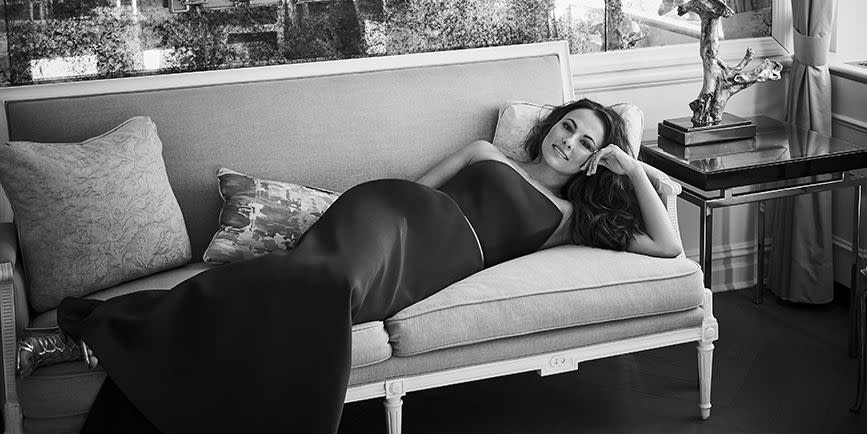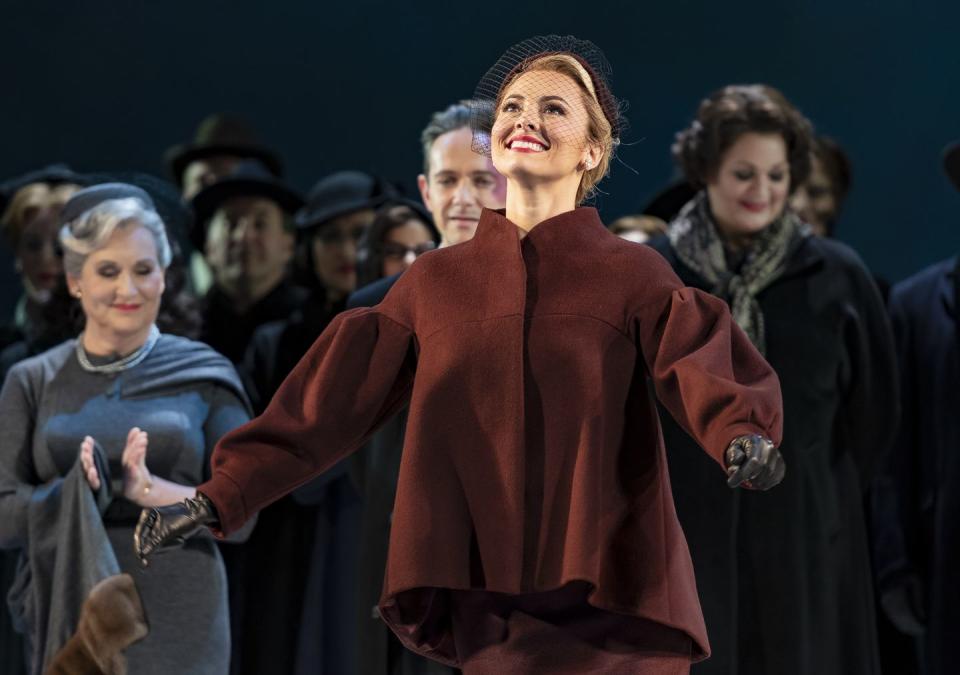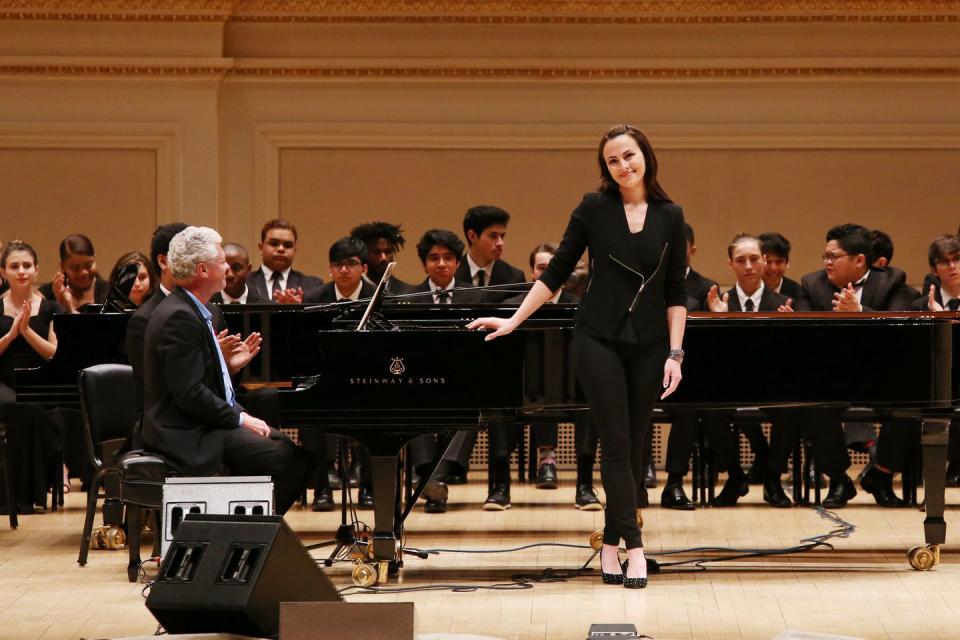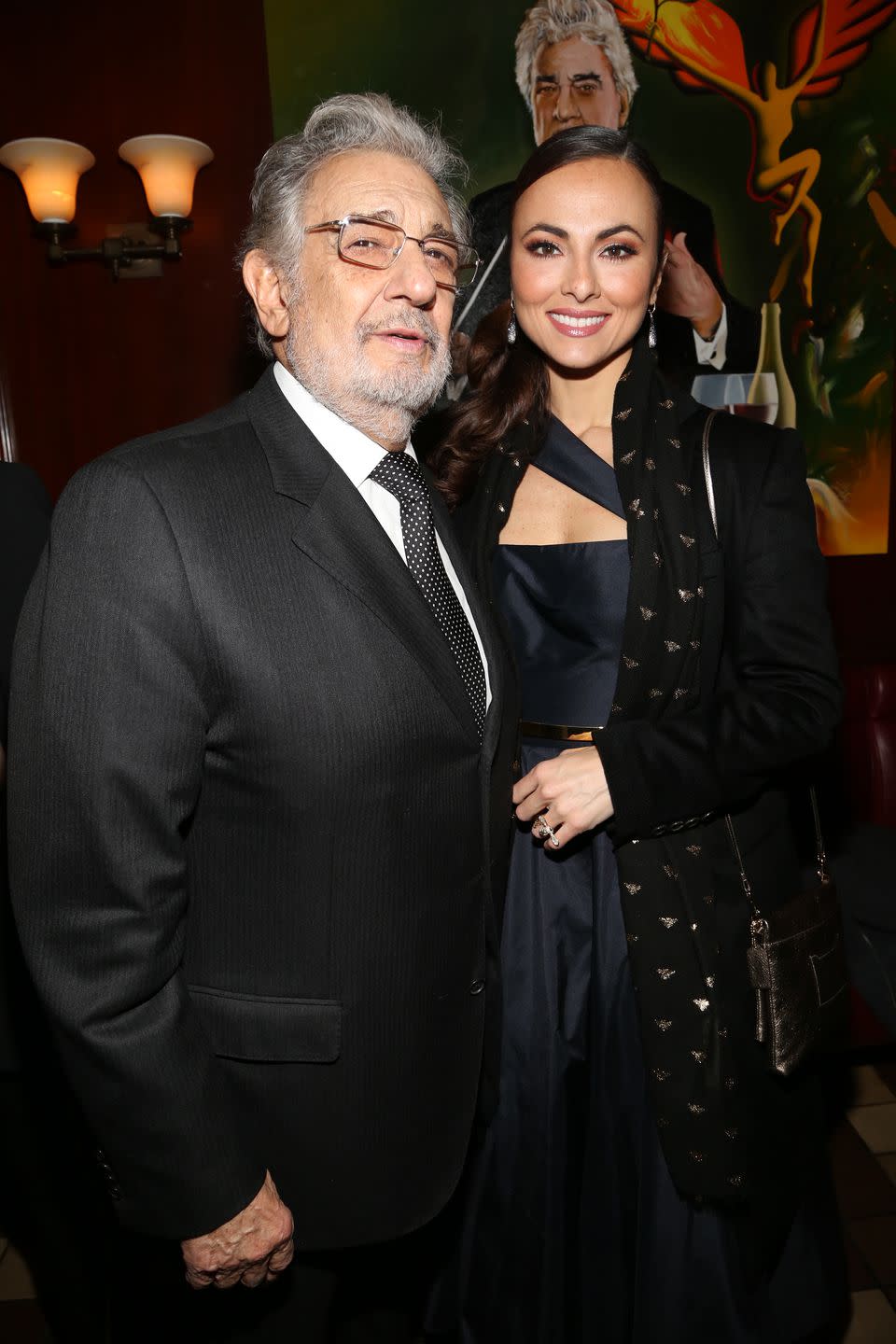What Makes Opera's Most Popular Singer Nervous?

It’s a wonder Isabel Leonard is able to talk at all. After all, the Grammy Award-winning singer is one of opera’s most in-demand voices, and this year alone she’s had leading roles in the Metropolitan Opera’s productions of Marnie and Pelléas et Mélisande and sang alongside Andrea Bocelli in his Three Centuries of Love. Next, she’ll appear in the Met’s Dialogues des Carmélites, opening May 3. But talk she did; here Leonard opens up to Town & Country about her career in opera, what you don’t know about singers, and why she never gets nervous.

It’s a big year for you with so many different productions. Where did the idea that you wanted to be an opera singer begin?
I still wonder how it all started. I don’t think you wake up as a kid and say, “I want to be an opera singer.” That wasn’t me. Music was always a part of my life, and I was in my early teens, I wanted to try singing-at the time that meant auditioning at LaGuardia High School. I ended up going there to study singing and discovering opera, and then was lucky enough to go on to Julliard. With opera, you never really know what will happen.
Opera requires a discipline that not every medium does. That’s not something everyone would sign up for in high school.
One of the big differences is going to a conservatory and you’re there with a group of students all of whom have a very specific purpose. To have that kind of focus early on gives you something in common with the people around you. We also all realized that we all did different things and we weren’t in direct competition, which made things better for everyone.

When you realize you have the pipes to sing professionally, what brings you to opera instead of musical theater or pop music?
I decided to go to Julliard because I knew would get a specific vocal technique. I got into a musical theater program at NYU and could have happily gone there, but for whatever reason when I visited the schools, I got a better feeling from Julliard based on that. And once you’re there, you’re entrenched in classical music; in your day to day grind, you have to actually decide to hear other things. So, I was studying and learning languages and diction and all of those things and suddenly discovered, oh, here I am. There wasn’t a lot of time to think about my path; I was already on it.
This year alone you’ve played a part based on a Hitchcock heroine as well as more classic roles. With all these different projects, what’s through line?
Besides being vocally appropriate-which means it’s within a range that makes sense for me to perform-it has to be about the character and the story. And in a language that I can understand. I really like to use music to communicate… My nightmare is to sing something I can’t understand.

Is there a role you’re still dying to play?
For me, it’s about stretching the medium in which I sing opera. I’d love to find a way to bring what I do to TV or film. I don’t want to be the token opera singer on a TV series singing an aria, but someone who can change the perspective of what opera singers can do and who they are.
With all of your experience, do you still get nervous before a performance?
I’ve never been one for butterflies in my stomach, but if I don’t feel like I’m fully prepared for something then I get nervous. More than anything, I still get excited.
('You Might Also Like',)

